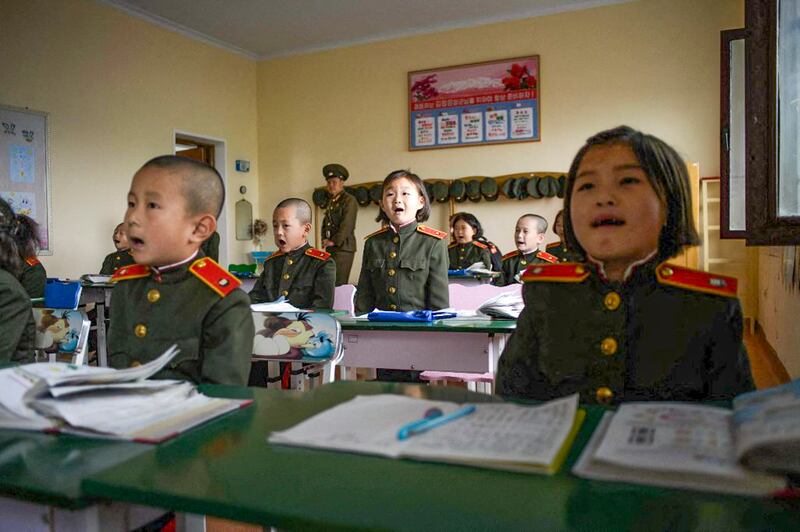North Korea is offering free textbooks to school children for the first time since the 1990s, but only on the condition that they provide the raw materials for the books in the form of scrap paper that is good enough to recycle, residents in the country told Radio Free Asia.
The students were instructed to bring 2 kilograms (4.4 pounds) of “high-quality” scrap paper to school on April 1, the first day of the new school year. Those who brought less than 2 kilograms did not receive all the textbooks, a resident of the northwestern province of North Pyongan told RFA Korean on condition of anonymity for security reasons.
“For students who cannot afford even 1 kilo of high-quality scrap paper, they will only receive three textbooks about the revolutionary activities (of members of the Kim Dynasty,)” she said. “They will only receive the remaining textbooks if they complete the scrap paper assignment.”
The last time the country offered free textbooks to students was when it was still being propped up by Soviet aid. The Soviet Union collapsed in 1991 and aid from Moscow dried up, and North Korea’s centrally planned economy tanked, resulting in the 1994-1998 famine that killed hundreds of thousands of people, or as many as 2.2 million – about 10% of the population – by some estimates.

But the government in recent years has recognized the disparity of educational opportunities between the capital Pyongyang and the provinces. The national budget has therefore been amended to include textbook production.
Valuable commodity
The problem is that North Korea does not have adequate raw materials to make enough textbooks out of new paper, and scrap paper good enough to recycle into textbooks is itself a valuable commodity.
A kilogram of high quality paper is worth 5,000 won (58 U.S. cents) in the local marketplace, whereas low quality paper can get 2,000 won (23 cents) – which is still expensive for most North Koreans.
Failure to bring enough paper will mean that the students will not receive the textbooks for English, math, information technology and physics, among other subjects that are key for a scientific education.
“Parents have to buy the high-quality scrap paper at the marketplace,” the resident said. “ But if the textbooks are only provided in exchange for the scrap paper, are they really free?”
In South Pyongan province, the quota was given to entire schools, and if the student body did not meet their quota then none of the students in their school would get all the books, a resident there told RFA on condition of anonymity to speak freely.
“Starting March 25, textbooks for each grade were supplied to educational institutions in each city and county, but schools that did not meet the scrap paper assignment did not receive some textbooks,” he said.
According to the South Pyongan resident, parents there complained that the revolutionary activities of the Kim Dynasty were propaganda, and therefore less important than math and science, but the authorities consider these to be important to instill loyalty into young people.
“The authorities defined the revolutionary activities as basic subjects, because they only care about ideological education,” he said.
Translated by Claire S. Lee. Edited by Eugene Whong and Malcolm Foster.
